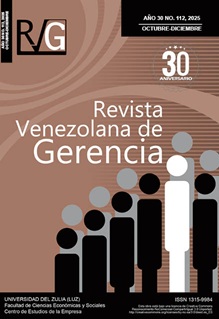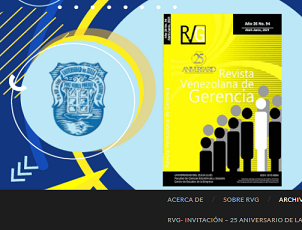Circular-based economy and female entrepreneurship in rural tourism communities: a research agenda
Abstract
This study addresses the critical intersection of female entrepreneurship and the circular economy within rural communities, a topic that has received limited systematic attention in academic literature. Rural areas often present unique socioeconomic and demographic challenges, including limited social and economic interaction, which can hinder the growth and sustainability of businesses, particularly those led by women. While existing research has explored the broader relationship between entrepreneurship and sustainability, a significant gap remains in studies that specifically systematize the convergence of the circular economy and female entrepreneurship. To bridge this gap, a comprehensive theoretical review was conducted, drawing exclusively from a corpus of scientific articles on the subject. The results show three important findings. First, the principles of the circular economy—such as reducing, reusing, and recycling resources—are highly compatible with the tourism sector, especially in rural settings where sustainable practices can create unique value propositions. Second, the review identified several benefits and best practices of a circular tourism economy, highlighting how these models can enhance resource efficiency and foster local economic resilience. Finally, the study outlined the significant challenges that female entrepreneurs face in adopting these models, including access to capital, networks, and specialized knowledge. Building on these insights, this research also proposes a set of strategic recommendations, aimed at not only to offer new opportunities for female entrepreneurs in rural areas but also to contribute directly to the objectives outlined in the 2030 Agenda for Sustainable Development, particularly those focused on gender equality and responsible consumption and production.
References
Aydoğan, B., & Güney, S. (2025). Mobilizing capitals, forging terroir: Lifestyle migration and envisioning a “better rural landscape”. Journal of Rural Studies, 119, 103714. https://doi.org/10.1016/j.jrurstud.2025.103714
Bertella, G. (2023). Small tourism providers’ stories about sustainability. Annals of Tourism Research Empirical Insights, 4(1), 100085. https://doi.org/10.1016/j.annale.2022.100085
Bonfanti, A., De Crescenzo, V., Simeoni, F., & Loza Adaui, C. R. (2024). Convergences and divergences in sustainable entrepreneurship and social entrepreneurship research: A systematic review and research agenda. Journal of Business Research, 170, 114336. https://doi.org/10.1016/j.jbusres.2023.114336
Bote, I., & Montalbán, B. (2024). Following the circular economy in European rural municipalities through the Spanish Urban Agenda. Ecological Economics, 224, 108263. https://doi.org/10.1016/j.ecolecon.2024.108263
Carlisle, S., Ivanov, S., & Espeso-Molinero, P. (2023). Delivering the European skills agenda: The importance of social skills for a sustainable tourism and hospitality industry. Tourism & Management Studies, 19(3), Artículo 3. https://doi.org/10.18089/tms.2023.190302
Chen, T., & Liu, G. (2025). Global perspectives on environmental policy innovations: Driving green tourism and consumer behavior in circular economy. Journal of Environmental Management, 374, 124138. https://doi.org/10.1016/j.jenvman.2025.124138
Cirtoinno. (s. f.). Economía circular. Cirtoinno. Recuperado de https://cirtoinno.eu/circular-economy/
European Union. (s. f.). [Página web sobre la visión rural de la Unión Europea]. Recuperado de https://rural-vision.europa.eu/index_en
Fanelli, R. M. (2022). Bridging the gender gap in the agricultural sector: Evidence from European Union countries. Social Sciences, 11(3), 1-18. https://doi.org/10.3390/socsci11030105
Gabor, M. R., Panait, M., Bacoş, I. B., Naghi, L. E., & Oltean, F. D. (2023). Circular tourism economy in European Union between competitiveness, risk and sustainability. Environmental Technology & Innovation, 32, 103407. https://doi.org/10.1016/j.eti.2023.103407
Gascón, J., & Cañada, E. (2025). Repeasantization and synergy between community-based tourism and family farming. Journal of Rural Studies, 116, 103627. https://doi.org/10.1016/j.jrurstud.2025.103627
Giampiccoli, A. (2020). A conceptual justification and a strategy to advance community-based tourism development. European Journal of Tourism Research, 25, 2503-2503. https://doi.org/10.54055/ejtr.v25i.418
Gómez-Baggethun, E. (2022). Is there a future for indigenous and local knowledge? The Journal of Peasant Studies, 49(6), 1139-1157. https://doi.org/10.1080/03066150.2021.1926994
González-Moreno, Á., Triguero, Á., Díaz-García, C., & Sáez-Martínez, F. J. (2024). Circular economy and entrepreneurship in Europe: An analysis of the impact of cultural factors, regulatory framework and rate of entrepreneurship. Environmental Technology & Innovation, 35, 103656. https://doi.org/10.1016/j.eti.2024.103656
Grah, B., Dimovski, V., & Peterlin, J. (2020). Managing sustainable urban tourism development: The case of Ljubljana. Sustainability, 12(3), Artículo 3. https://doi.org/10.3390/su12030792
Henao-Hincapié, L. J., Leyes, M., Loeber-Vizcaíno, G. E., Cruz-Pérez, A., Romero-Perdomo, F., & González-Curbelo, M. Á. (2024). Assessing consumer knowledge, attitudes, and adoption of circular economy practices in Colombia. Sustainable Production and Consumption, 46, 256-267. https://doi.org/10.1016/j.spc.2024.02.030
Henninger, C. E., Brydges, T., Iran, S., & Vladimirova, K. (2021). Collaborative fashion consumption – A synthesis and future research agenda. Journal of Cleaner Production, 319, 128648. https://doi.org/10.1016/j.jclepro.2021.128648
International Labour Organization. (2024). OECD Tourism Trends and Policies 2024. https://www.oecd.org/content/dam/oecd/en/publications/reports/2024/07/oecd-tourism-trends-and-policies-2024_17ff33a3/80885d8b-en.pdf
Khizar, H. M. U., Younas, A., Kumar, S., Akbar, A., & Poulova, P. (2023). The progression of sustainable development goals in tourism: A systematic literature review of past achievements and future promises. Journal of Innovation & Knowledge, 8(4), 100442. https://doi.org/10.1016/j.jik.2023.100442
Kolade, O., Oyinlola, M., Ogunde, O., Ilo, C., & Ajala, O. (2024). Digitally enabled business models for a circular plastic economy in Africa. Environmental Technology & Innovation, 35, 103657. https://doi.org/10.1016/j.eti.2024.103657
Licastro, A., & Sergi, B. S. (2021). Drivers and barriers to a green economy. A review of selected balkan countries. Cleaner Engineering and Technology, 4, 100228. https://doi.org/10.1016/j.clet.2021.100228
Lucchi, E., Turati, F., Colombo, B., & Schito, E. (2024). Climate-responsive design practices: A transdisciplinary methodology for achieving sustainable development goals in cultural and natural heritage. Journal of Cleaner Production, 457, 142431. https://doi.org/10.1016/j.jclepro.2024.142431
Ma, X., Zhao, Y., & Su, W. (2025). When hosts meet guests: Local residents’ identity construction amidst rural tourism gentrification. Annals of Tourism Research, 112, 103951. https://doi.org/10.1016/j.annals.2025.103951
Mathieu, A. (2024). Foundations and conditions of green jobs in developing economies: Systematic literature review and bibliometric analysis. Development and Sustainability in Economics and Finance, 2-4, 100016. https://doi.org/10.1016/j.dsef.2024.100016
Matovu, B., Bleischwitz, R., Lukambagire, I., Etta, L. A., Alkoyak-Yildiz, M., Tarek, R., Lee, M.-A., Mammel, M., Anusree, S., & Suresh, A. S. (2025). Linking the blue economy to Women’s empowerment to create avenues for the realization of ocean sustainability targets in the global south. Ocean & Coastal Management, 262, 107582. https://doi.org/10.1016/j.ocecoaman.2025.107582
McCall, C. E., & Mearns, K. F. (2021). Empowering women through community-based tourism in the Western Cape, South Africa. Cognizant Communication Corporation. https://doi.org/10.3727/154427221X16098837279967
Merli, R., Preziosi, M., & Acampora, A. (2018). Sustainability experiences in the wine sector: Toward the development of an international indicators system. Journal of Cleaner Production, 172, 3791-3805. https://doi.org/10.1016/j.jclepro.2017.06.129
Mirkova, I., & Padrón-Fumero, N. (2025). From vulnerability to resilience: Empowering stakeholder-driven just transitions in island tourism economies. Energy Research & Social Science, 121, 103966. https://doi.org/10.1016/j.erss.2025.103966
Monroy, H. C., Adame, N. M. V., & Vizuet, G. I. (2023). Estimación de la especialización y del potencial turístico rural en Hidalgo, México. Turismo y Sociedad, 33, 191-211. https://doi.org/10.18601/01207555.n33.08
Mora, D., Moral-Cuadra, S., López-Guzmán, T., & Aguilar-Rivero, M. (2025). Circular economy practices in wine tourism: Environmental policies and strategies for the development of wine routes in Spain. International Journal of Gastronomy and Food Science, 39, 101122. https://doi.org/10.1016/j.ijgfs.2025.101122
Morais, A. C., & Ishida, A. (2025). An overview of residential food waste recycling initiatives in Japan. Cleaner Waste Systems, 10, 100232. https://doi.org/10.1016/j.clwas.2025.100232
Moran, M. (s. f.). Crecimiento económico. Desarrollo sostenible. Naciones Unidas. Recuperado de https://www.un.org/sustainabledevelopment/es/economic-growth/
Perpiña, C., Ribeiro, R., Curtale, R., Kompil, M., Jacobs-Crisioni, C., Vallecillo, S., Aurambout, J.-P., Batista e Silva, F., Sulis, P., & Auteri, D. (2024). Are remote rural areas in Europe remarkable? Challenges and opportunities. Journal of Rural Studies, 105, 103180. https://doi.org/10.1016/j.jrurstud.2023.103180
Portuguez-Castro, M., & Ramírez-Montoya, M. S. (2025). Transformative economies and complex thinking: Enhancing sustainability competencies in business education. The International Journal of Management Education, 23(3), 101223. https://doi.org/10.1016/j.ijme.2025.101223
Rachele, R. (2022). EU’s Long-Term Vision for Rural Areas: European Parliament Report. https://policycommons.net/artifacts/3328228/a-long-term-vision-for-the-eus-rural-areas/4126954/
Recycling Programs Evolve In Rural Settings. (s. f.). Waste360. Recuperado de https://www.waste360.com/waste-recycling/recycling-programs-evolve-in-rural-settings
Ribeiro, B. R., Proietti, P., Batista, E. S. F., Perpiña, C. C., & Lavalle, C. (2021). Tourism capacity, expenditure and seasonality in Europe by urban-rural typology and remoteness. JRC Publications Repository. https://publications.jrc.ec.europa.eu/repository/handle/JRC124459
Rodríguez, C., Florido, C., & Jacob, M. (2020). Circular economy contributions to the tourism sector: A critical literature review. Sustainability, 12(11), Artículo 11. https://doi.org/10.3390/su12114338
Roy, S., Rautela, R., & Kumar, S. (2023). Towards a sustainable future: Nexus between the sustainable development goals and waste management in the built environment. Journal of Cleaner Production, 415, 137865. https://doi.org/10.1016/j.jclepro.2023.137865
Sociedad Mercantil Estatal para la Gestión de la Innovación y las Tecnologías Turísticas. (2022). Destinos turísticos inteligentes. SEGITTUR. https://www.segittur.es/destinos-turisticos-inteligentes/proyectos-destinos/destinos-turisticos-inteligentes/
Sharma, H. B., Vanapalli, K. R., Samal, B., Cheela, V. R. S., Dubey, B. K., & Bhattacharya, J. (2021). Circular economy approach in solid waste management system to achieve UN-SDGs: Solutions for post-COVID recovery. Science of The Total Environment, 800, 149605. https://doi.org/10.1016/j.scitotenv.2021.149605
Sheppard, D., & Pemberton, S. (2023). The actions of key agents in facilitating rural super-gentrification: Evidence from the English countryside. Journal of Rural Studies, 97, 485-494. https://doi.org/10.1016/j.jrurstud.2023.01.004
Sokk, V. (2024). Tradition in transition: Investigating the impact of modernization on indigenous cultures. Journal Social Humanity Perspective, 2(1), Artículo 1.
Sørensen, F., & Bærenholdt, J. O. (2020). Tourist practices in the circular economy. Annals of Tourism Research, 85, 103027. https://doi.org/10.1016/j.annals.2020.103027
Sorin, F., & Sivarajah, U. (2021). Exploring circular economy in the hospitality industry: Empirical evidence from Scandinavian hotel operators. Scandinavian Journal of Hospitality and Tourism, 21(3), 265-285. https://doi.org/10.1080/15022250.2021.1921021
Strippoli, R., Gallucci, T., & Ingrao, C. (2024). Circular economy and sustainable development in the tourism sector – An overview of the truly-effective strategies and related benefits. Heliyon, 10(17), e36801. https://doi.org/10.1016/j.heliyon.2024.e36801
Suhardono, S., Phan, T. T. T., Lee, C.-H., & Suryawan, I. W. K. (2025). Design strategies and willingness to pay for circular economy service policies in sustainable tourism. Environmental Challenges, 18, 101081. https://doi.org/10.1016/j.envc.2025.101081
Tehrani, Y. A. F., Sarkar, A., & Shetranjiwalla, S. (2025). Integrating traditional ecological knowledge into a circular economy framework using the example of consumer durable goods for northern rural communities. RSC Sustainability, 3(5), 2048-2063. https://doi.org/10.1039/D4SU00623B
Trupp, A., & Sunanta, S. (2017). Gendered practices in urban ethnic tourism in Thailand. Annals of Tourism Research, 64, 76-86. https://doi.org/10.1016/j.annals.2017.02.004
Turner, N. J., & Berkes, F. (2006). Coming to understanding: Developing conservation through incremental learning in the Pacific Northwest. Human Ecology, 34(4), 495-513. https://doi.org/10.1007/s10745-006-9042-0
United Nations Women. (2024). Más allá del COVID-19: Un plan feminista para la sostenibilidad y la justicia social. Naciones Unidas. https://doi.org/10.18356/9789210014977
Vanella, P., Hellwagner, T., & Deschermeier, P. (2023). Parsimonious stochastic forecasting of international and internal migration on the NUTS-3 level – an outlook of regional depopulation trends in Germany. Austriaca. https://austriaca.at/0xc1aa5572%200x003fa445.pdf

This work is licensed under a Creative Commons Attribution-NonCommercial-ShareAlike 4.0 International License.








.png)






























